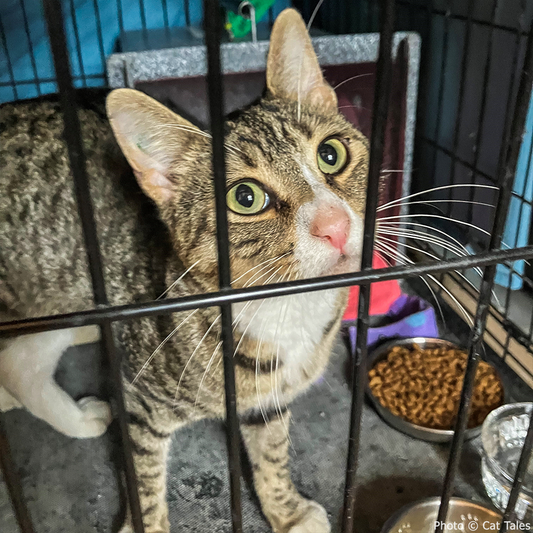Poachers Ravage Utah Wildlife as Over 100 Animals Killed Illegally
Matthew Russell
Photo: Pexels
Utah’s wildlife is under siege, and the numbers paint a grim picture. Since August 1, 2024, over 100 animals, including deer, elk, moose, and fish, have been illegally killed in the state.
The Utah Division of Wildlife Resources (DWR) is grappling with a spike in poaching cases, particularly as hunting season gets underway. This wave of illegal hunting is concerning both officials and conservationists, who rely on wildlife populations for ecological balance and recreational opportunities.
The problem isn’t new, but the scale of recent poaching incidents has raised alarms. Wildlife officials are asking for public assistance to help curb the rise in illegal activity.

A Surge in Poaching Before Hunting Season
The timing of this surge in poaching is not a coincidence. Poaching often spikes ahead of Utah’s busy fall hunting season. Between August and September 2024, 849 citations have been issued for wildlife violations, a statistic that underscores the severity of the problem.
DWR Captain Chad Bettridge emphasizes the importance of responsible hunting, urging hunters to follow the laws and respect hunting permits.
“Hunters need to take responsibility for knowing the law, having a current hunting or combination license, and also knowing what species and areas their permits allow them to hunt before they go out into the field,” he told KSL.
Conservation officers face a tough challenge in keeping up with poaching incidents. While legal hunts help maintain balanced wildlife populations, poaching creates imbalances that could have long-term consequences. The illegal killings include nine deer, six elk, two moose, one bear, and even protected species such as a pronghorn. These incidents have led to renewed calls for vigilance from hunters and the public alike.

Why Is Poaching Increasing?
The uptick in poaching can be attributed to several factors. Some incidents are accidental, with hunters mistakenly killing the wrong species or hunting in restricted areas. But many cases are opportunistic, with poachers deliberately targeting animals outside of legal hunting parameters.
Faith Heaton Jolley, a DWR spokesperson, acknowledged this complexity, explaining to KSL NewsRadio that while some violations are mistakes, others are intentional and exploit gaps in enforcement.
The increase in outdoor activity ahead of hunting season may also play a role. More hunters in the field can lead to more chances for violations, whether accidental or not. However, with only 53 DWR conservation officers patrolling the entire state, covering every corner of Utah is an impossible task. Officers rely heavily on tips from the public to monitor and investigate suspected poaching incidents.

How the Public Can Help
Public cooperation is critical in stopping poachers. Officers receive valuable tips through various reporting channels, including the Utah Turn-in-a-Poacher hotline and the UTDWR app.
The DWR received more than 200 tips following its call for help, a clear indication that citizens are stepping up to assist in investigations, reports ABC4.
As the DWR maintains, the most effective way to report a crime is to gather as much information as possible, including vehicle license plate numbers and GPS coordinates. Confronting a suspected poacher is not advised, as it can put individuals in dangerous situations. Instead, officials recommend observing from a safe distance and submitting a detailed report after the fact.
"With the information you share, we can enforce wildlife laws, which help with wildlife conservation and maintaining healthy populations and also keep our recreating public safe,” Bettridge said in a statement.

Consequences for Poachers
Utah takes wildlife crimes seriously. According to the DWR, convicted poachers face steep fines, potential jail time, and the loss of hunting privileges, not only in Utah but across 48 other states through the Interstate Wildlife Violator Compact. The restitution penalties for illegally killing trophy animals are significant, with bighorn sheep fines reaching up to $45,000. For less severe violations, penalties may still include hefty fines and temporary loss of hunting licenses.
Despite these consequences, the state’s relatively small conservation force struggles to prevent all poaching incidents. The DWR’s ongoing efforts to curb illegal hunting include public awareness campaigns and a plea for more community involvement.

Looking Ahead
The DWR is working tirelessly to combat poaching as hunting season ramps up. With the general rifle deer and elk hunts approaching in October, wildlife officers expect poaching incidents to continue unless proactive measures are taken. In addition to legal enforcement, public reporting remains a cornerstone in protecting Utah’s wildlife.
"We just honestly don’t have a ton of conservation officers, so we really need people’s help getting information on these cases," Jolley told Fox13 Now.
As Utah continues its fight against poaching, the focus must remain on conservation and the importance of legal hunting practices. While the road ahead is difficult, a collective effort from the public and officials can ensure that Utah’s wildlife remains protected for future generations.
Click below to take action for Utah’s wildlife!
Matthew Russell is a West Michigan native and with a background in journalism, data analysis, cartography and design thinking. He likes to learn new things and solve old problems whenever possible, and enjoys bicycling, spending time with his daughters, and coffee.




















